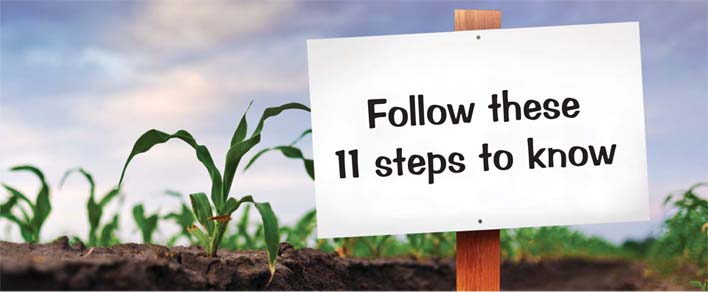January 2017

Our farmers are experiencing challenges with regards to their farming businesses all the time. The climate affects our businesses, hopefully by the time you read this article the drought will be something of the past.
We experience political insecurity, marketing challenges and a cost-price squeeze to name but a few challenges. As farmers we must face the facts and ask our self the question: ‘Will my farm survive?’ continuously.
Here are a few other steps we must attend to, to ensure our farming businesses remains viable and sustainable. These steps are apart from all the other work such as managing your production, marketing, human resources, and so forth.
Do you keep proper and useful records? It is an undisputed fact that one cannot manage without information – you cannot manage if you do not measure. Thus, information of actual events needs to be gathered, measured and recorded both in terms of physical quantities but also the finances involved. The events must be measured and recorded in a format that will make it easy for the farmer to use, whether you do it manually or use a computerised system. In farming this process is known as record-keeping.
Secondly do you farm for long-term sustainable profitability? Note, we do say to farm for maximum profits. If you do not farm with the aim of making a long-term sustainable profit your business will only be a hobby and you will not survive for many years. To measure your profitability you need a proper and correct income statement which you cannot provide if you do not apply proper financial record-keeping.
Do you have more assets than liabilities? The total assets must be more than your liabilities (debt) with a ratio of at least 2:1 to be safe. To determine this ratio you need proper financial statements and specifically a realistic or true balance sheet, just as you need an income statement. In practice this step means, do not buy too much with borrowed money.
Do you manage your cash properly and remember not to spend tomorrow’s money today except if it is absolutely for production purposes? Also ask yourself the question whether you can service all debt and pay all cash expenses, such as wages, every month. The only way to answer this question is to compile a cash-flow statement. To be able to do this you need dependable information, hence proper record-keeping.
Do you separate your business ‘must haves’ from ‘nice to haves’? This might sound obvious, but is worth thinking carefully about where you cut costs in tough times and where you keep spending. Spending on ‘must haves’ should include the assets needed to produce products of high quality, marketing, and training of employees. These are all areas which will allow your business to survive and grow.
On the other hand, some of the following could be considered ‘nice to haves’ in the current economic climate: Replacing vehicles, IT equipment and upgrading of phones.
The best way to control these expenditures is by means of a proper business plan (budget) which will allow you to scrutinise and minimise costs.
Do you improve your efficiency, or one could say the productivity, of each enterprise by applying efficiency measures – ‘something per something else’ – tons maize produced per hectare, kilometres travelled per a litre of fuel, kilogram wool produced per ewe, and so forth? This is important because to overcome the cost-prize squeeze, income must be increased by producing more per hectare, and so forth and controlling your costs.
Do you apply conservation farming practices? Apply conservation farming practises. Over a period of time the soil fertility will increase resulting in higher production. Conservation farming can be described as a sustainable profitable farming system that reduces soil disturbance through minimum tillage and rotating of crops with the purpose of leaving as much as possible plant material (mulch) on the lands to increase water infiltration.
What about new technology? Always consider new techniques and equipment that could be helpful in achieving better production. However, think very carefully before investing in the latest technology. It is important to stay up to date with the latest technology, but you must always be able to afford the purchases of new technology.
Investigate to diversify your business into a few enterprises aiming to increase your income and manage risks. One cannot emphasise the importance to diversify enough. But again you must consider all aspects carefully. However, the advantages of diversifying – improved cash-flow, spreading of risks, increasing of profit – outscore the disadvantages.
Attend to these steps diligently and your business could survive but the vice versa is also true and as stated quite a number of times – if you do not measure, you cannot manage properly.
Article submitted by Marius Greyling, Pula Imvula contributor.
For more information, send an email to mariusg@mcgacc.co.za.
Publication: January 2017
Section: Pula/Imvula